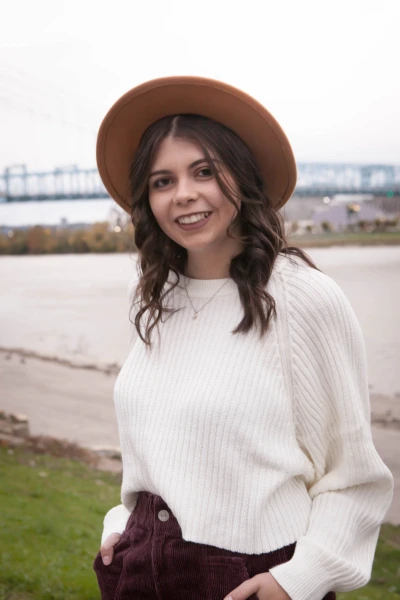Howe Center Hosts Groundbreaking "Sensemaking for Student Success" Seminar funded by Lumina Foundation
In July 2024, the Howe Center for Writing Excellence hosted a groundbreaking pilot of a sensemaking method developed by Elizabeth Wardle that seeks to imagine faculty as the best resource to solve urgent problems facing higher education.
Howe Center Hosts Groundbreaking "Sensemaking for Student Success" Seminar funded by Lumina Foundation
How do we attract, engage, and retain students? How can we update antiquated learning methods? What will increase public confidence and state funding? When trying to solve problems such as these, academic leaders tend to look to people outside their institution for help. Instead, a sensemaking method developed by Elizabeth Wardle seeks to imagine faculty as the best resource to solve these urgent problems.
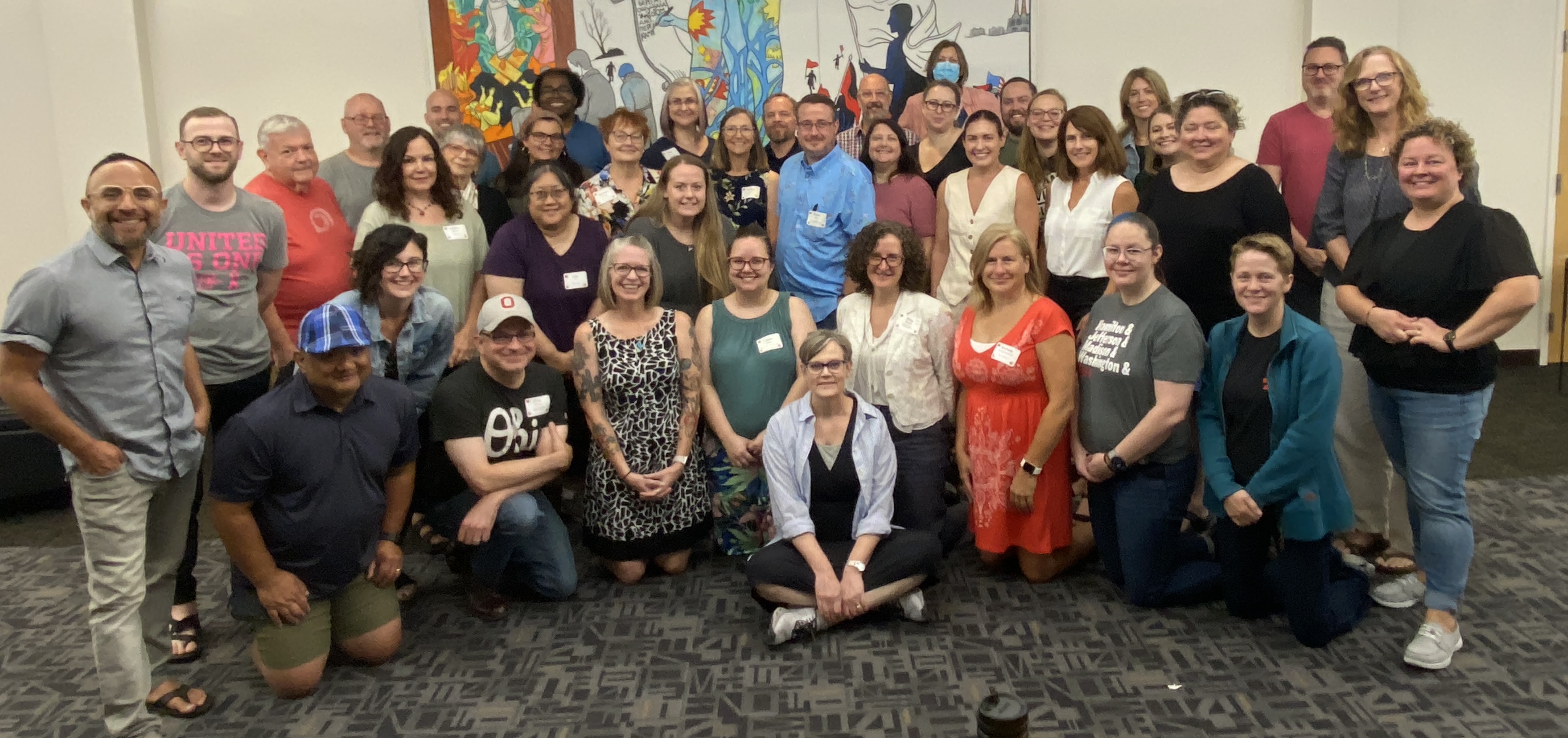
In late July 2024, 8 faculty teams from 7 Ohio institutions of higher ed gathered at Miami University for an eight-day intensive seminar: Ohio State University, Kent State, the University of Akron, the University of Toledo, the University of Cincinnati, Ursuline College, and Youngstown State University. This event marked the beginning of an 18-month initiative aimed at leveraging faculty expertise to drive student success and foster meaningful change.
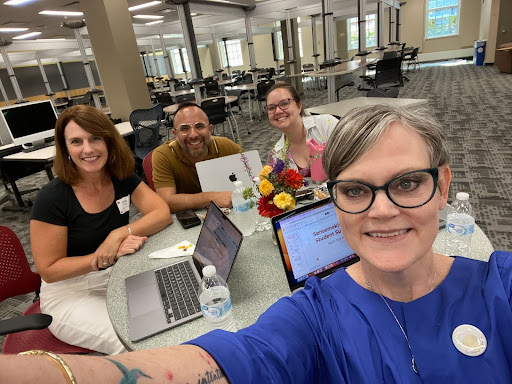
From left to right: Stacy Wilson, Alex Arreguin, Caitlin Martin, Elizabeth Wardle
The Sensemaking for Student Success seminar was led by Elizabeth Wardle, Director of Miami’s Howe Center for Writing Excellence (HCWE), with Alex Arreguin and Stacy Wilson from Mesa Community College. Faculty teams were facilitated by a group of experienced educators, including Mandy Olejnik, Will Chesher, Rena Perez, Elizabeth Hoover (Music), Janice Kinghorn (Economics), Mark Sidebottom (Mechanical Engineering), Jennifer Kinney (Gerontology), and Colin Charlton (University of Texas Rio Grande Valley). Caitlin Martin, a former Howe Graduate Assistant Director and now Assistant Professor at Embry-Riddle Aeronautical University, was tasked with coordinating assessment for the seminar.
Participants focused on addressing key challenges facing higher education today, including improving the first-year experience for STEM students, enhancing retention and graduation rates, promoting active learning, revising curricula, and integrating core skills such as writing across major courses.
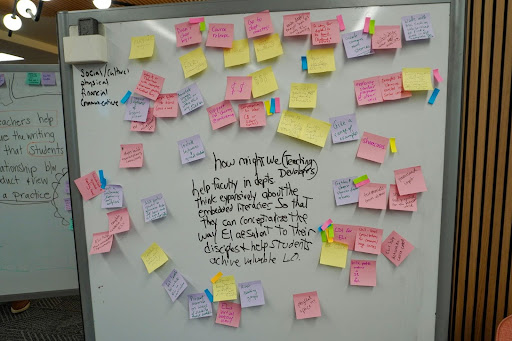
A collaborative dot board exercise
The Sensemaking for Student Success program was developed at Miami University, first piloted at the HCWE in 2017 through the popular Faculty Writing Fellows program. Since its inception, more than 190 faculty members have collaborated to cultivate new strategies to attract, engage, and retain students, fostering environments that promote deep, supported learning. The program's success caught the attention of a large community college system in Arizona, which adopted the sensemaking method across its 10-college system in 2021.
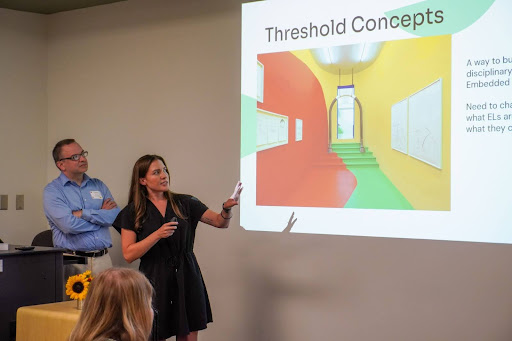
The Ohio State team presenting their work
Thanks to a $300,000 grant from Lumina Foundation, the HCWE has expanded the sensemaking method to institutions across Ohio. Faculty and staff teams from various schools are now equipped to tackle complex issues in higher education, guided by a problem-solving approach that emphasizes collaboration and reflection.
"Higher education is facing numerous challenges," said Wardle. "Too often, our efforts to enact deep change leave out the primary stakeholders (including faculty and staff) and skip the necessary sensemaking process. This seminar was a pilot funded by Lumina Foundation, and it was an incredible week of engagement, collaboration, and innovative thinking."
During the seminar, participants engaged with threshold concepts, learning theory, writing theory, and design thinking through multimodal activities. A highlight of the week included utilizing the resources at Miami University Libraries Makerspace, guided by the expert leadership of Creation and Innovation Services Librarian Sarah Nagle.
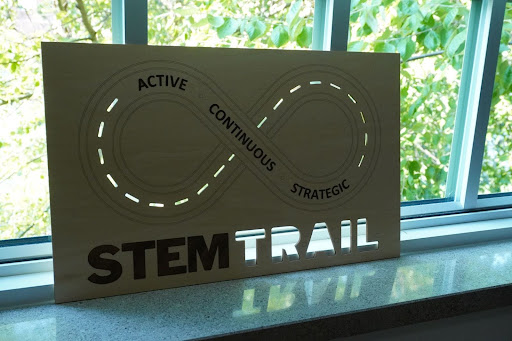
A Makerspace project
Over the next year, the changemakers will receive monthly coaching and assessment support as they return to their campuses to expand these initiatives and bring more stakeholders into the process.
"The methods we’ve been using in higher education to solve problems simply aren’t sufficient for the challenges we face today," Wardle added. "If you're looking for new ways to approach these issues with a fresh perspective, we’re ready to extend this work to new groups and explore different formats."

Director Wardle expressed her gratitude for the support from Miami University and the Howe Center for Writing Excellence, which provided fertile ground for this pioneering work.
